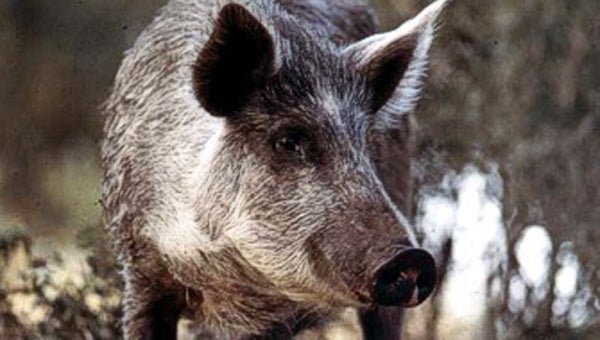Farmers going hog wild: feral pig population creeping in
Published 10:49 am Tuesday, November 12, 2013

Feral swine have not caused much of an uproar in Southwest, Ga. but steadily their population numbers are invading the entire state.
Farmers have always dealt with natural damages to their crops, whether it’s a rainstorm, tornado or some other uncontrollable force. Most of the time, they are able to file these damages under crop insurance, but an unexpected problem is wiping that option clear off the board.
Feral hogs have invaded Georgia. In Atlanta, the wild pigs are terrorizing suburban neighborhoods, rooting through trash and making a mess. Children are afraid to leave their homes and families want the tusked pests gone.
Farther south, feral hogs are ruining and damaging crops. Local farmer Glen Heard has seen the damage on his own land.
“Mostly they’re digging into crops and tearing things up,” Heard said.
He owns one thousand acres in Seminole County, where he grows mostly corn and peanuts. Soon he will be planting potatoes. The last thing he wants is a wild hog eating his crops and costing him money.
“It’s mostly peanuts they get into,” Heard said. “I haven’t done anything about it yet, but I’m about to.”
Although farmers are getting their crops ruined by the pig intruders, many people around Decatur county and surrounding communities haven’t heard news of the feral threat. Phil Long, a well-known hog shower in Bainbridge who has taken on the nickname “The Hogfather,” hasn’t heard of the damages wild pigs are doing to farms.
The Georgia Farm Insurance Bureau hasn’t filed any reports in Decatur County of damaged crops do to feral hogs. How much of problem is it?
Turns out it’s becoming a large one, and it’s only beginning to get worse.
Number one on Heard’s list of solutions is Jason Alford, a Seminole County resident who has gained a reputation as a hog exterminator.
“I started doing this in Florida 15 or 16 years ago,” Alford said. “I moved to South Georgia 10 years ago and have been killing hogs here ever since.”
Last year, Alford, 33, killed 187 feral hogs in South Georgia. Starting last winter and continuing through the summer, he killed 200. Even though he is providing a service to farmers and plantation owners, Alford has a different outlook on it.
“It’s a recreational thing,” he said.
According to Alford, the hogs are making their way west from Lake Seminole and spreading out in all directions, slowly but surely. As to why the pigs are migrating so much, Alford has a very simple answer.
“They’re overpopulated,” he said. “Every 90 days they can have a litter of anywhere between four to 15 pigs.”
The hogs will migrate from one food source to the next. Though they love to gorge themselves on whatever they can find, they can survive on very little food.
“The hogs I hunted in Florida were leaner and tougher,” Alford said. “The one’s I hunt now have so much more fat on them.”
What keeps more of the population in the lower part of the state is water. Feral pigs like to keep hydrated. Often times they’ll find mud holes to lie in and cool off.
They aren’t naturally confrontational, but if a feral pig is cornered or threatened, they will most likely attack. A mother hog protects her young similarly to how a mother bear looks after her cubs.
Alford has seen thousands of dollars worth of peanuts wiped out over night by feral hogs. It’s disappointing to him that farmers can’t file the damage under crop insurance because the population of hogs can be controlled. That’s why he is stepping in to try and help landowners fix that problem by wiping them out.
Sometimes Alford will properly dispose of any feral pig he kills. But his favorite way to get rid of the hogs is to eat them.





